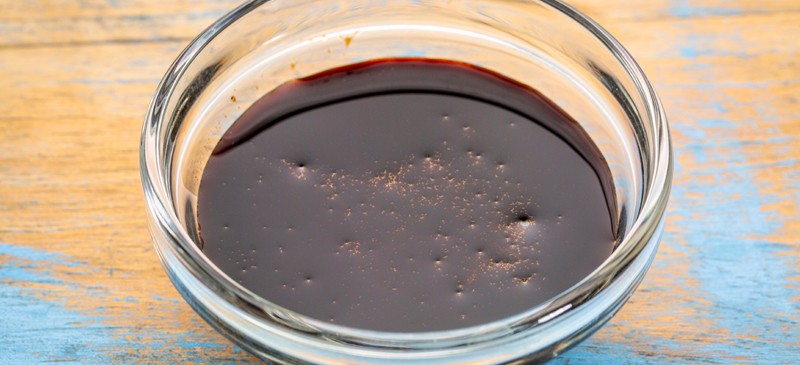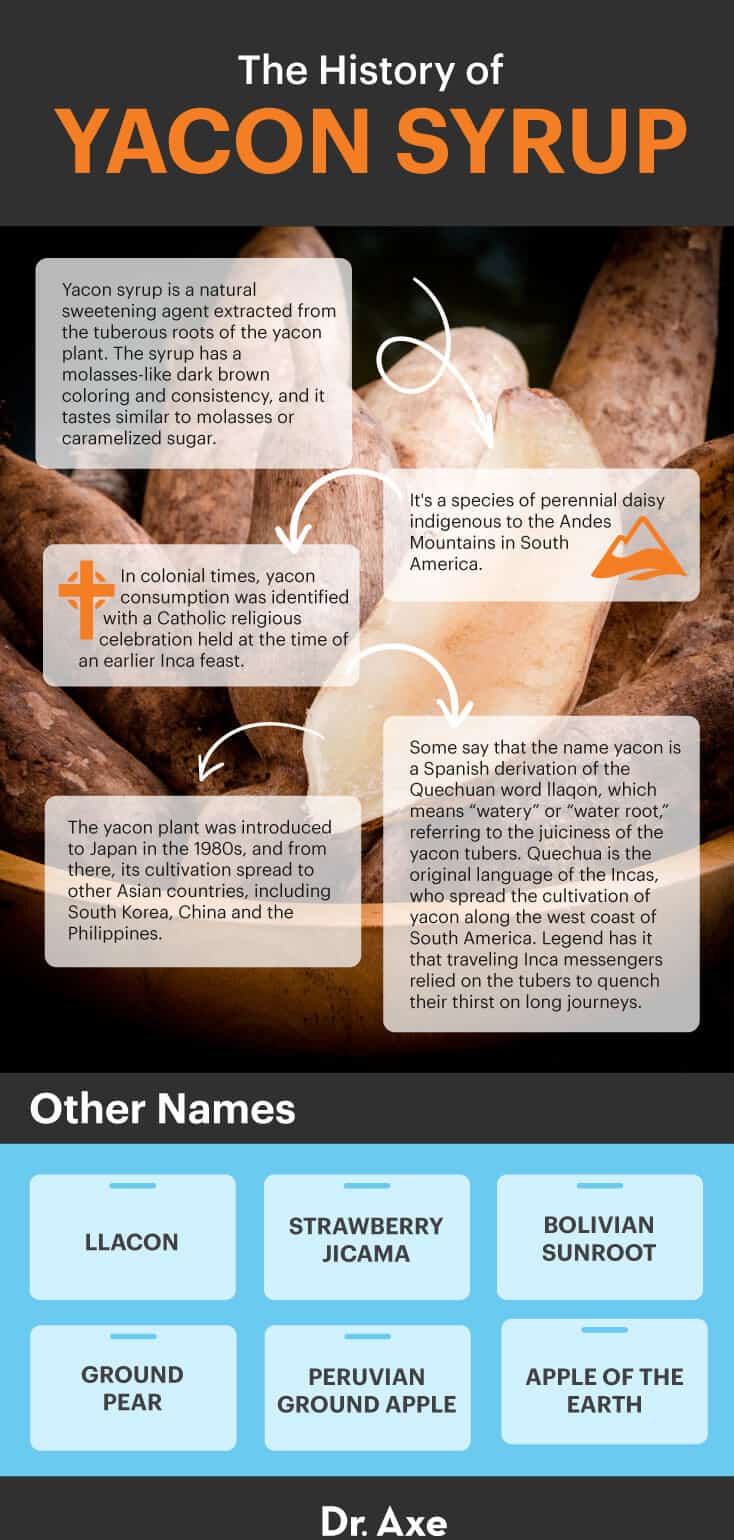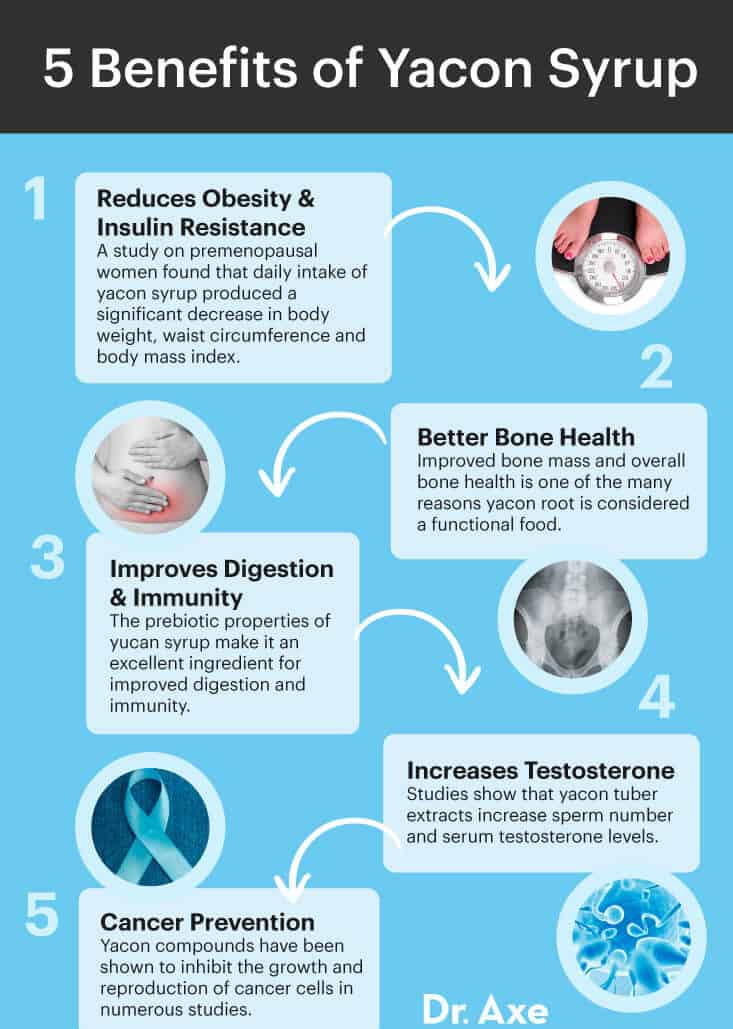This Dr. Axe content is medically reviewed or fact checked to ensure factually accurate information.
With strict editorial sourcing guidelines, we only link to academic research institutions, reputable media sites and, when research is available, medically peer-reviewed studies. Note that the numbers in parentheses (1, 2, etc.) are clickable links to these studies.
The information in our articles is NOT intended to replace a one-on-one relationship with a qualified health care professional and is not intended as medical advice.
This article is based on scientific evidence, written by experts and fact checked by our trained editorial staff. Note that the numbers in parentheses (1, 2, etc.) are clickable links to medically peer-reviewed studies.
Our team includes licensed nutritionists and dietitians, certified health education specialists, as well as certified strength and conditioning specialists, personal trainers and corrective exercise specialists. Our team aims to be not only thorough with its research, but also objective and unbiased.
The information in our articles is NOT intended to replace a one-on-one relationship with a qualified health care professional and is not intended as medical advice.
Yacon Syrup: Improve Digestion & Immunity with This Prebiotic (+ Other Benefits)
May 15, 2019

Refined sugar and sweeteners made artificially are extremely hazardous for your health. There really are no “best artificial sweeteners,” but there are great alternative sweeteners or “healthy” sweeteners out there. Yacon syrup is one of them.
It’s a natural sweetening agent extracted from the tuberous roots of the yacon plant. The syrup has a molasses-like dark brown coloring and consistency, and it tastes similar to molasses or caramelized sugar.
Is yacon syrup good for diabetics? With a yacon syrup glycemic index of 1, half the calories of sugar and a high concentration of indigestible inulin, yacon is a great sugar substitute for diabetics and those looking to reduce sugar consumption or kick their sugar addiction. You can use this syrup in baked goods, smoothies, desserts, sauces and dressings, just to name a few of the possibilities.
What Is Yacon Syrup?
Are you a fan of healthy sweeteners like raw honey? If the answer is “yes,” then you may want to try yacon syrup if you haven’t already!
Yacon syrup is made from the edible part of the yacon plant — its cluster of tubers or storage roots. Yacon (yah-KON) is also sometimes called llacon, strawberry jicama, Bolivian sunroot, ground pear, and Peruvian ground apple or apple of the Earth. The scientific name of the yacon syrup plant is Smallanthus sonchifolius (formerly Polymnia sonchifolia), and it’s a species of perennial daisy indigenous to the Andes Mountains located in South America.
Is yacon a fruit or vegetable?
It’s considered a root vegetable.
What does yacon taste like?
The crisp, sweet-tasting, tuberous roots of yacon have a texture and flavor similar to jicama or an apple. Some say that the name yacon is a Spanish derivation of the Quechuan word llaqon, which means “watery” or “water root,” referring to the juiciness of the yacon tubers.
Is yacon a sweet potato?
No, it’s not a sweet potato, but it is sometimes described as a “sweet potato-like root vegetable.”
In the Peruvian Andes where yacon production is flourishing, you can find yacon processed into almost anything in the local markets — from jam to pancake syrup, soft drinks, pudding and breakfast cereals. Currently, fructooligosaccharides, like the ones contained in yacon root syrup, are increasingly included in food products and infant formulas due to their prebiotic effect, which stimulates the growth of nonpathogenic intestinal microflora.

Nutrition Facts and Active Ingredients
Is yacon syrup sugar-free?
It does not contain any refined sugar, but yacon root syrup is high in fructooligosaccharides (FOS), an indigestible polysaccharide made up of fructose or fruit sugar. Fructoogliosaccharides are found in fruits and vegetables, such as bananas, garlic, onions, leeks, chicory root, asparagus and jicama, as well as the yacon plant and the blue agave plant. Some grains, such as wheat and barley, also contain FOS. Yacon, the Jerusalem artichoke (also known as sunchoke) and blue agave have been found to have the highest concentrations of FOS content of cultured plants.
Yacon root syrup contains a high percentage of fructooligosaccharides, which are prebiotics that pass through the upper part of the gastrointestinal tract and remain undigested. When fructooligosaccharides reach the colon undigested, they are then fermented by gut microflora, increasing bowel mass and promoting the growth of beneficial bacteria. For these reasons, yacon root syrup can be helpful when it comes to digestive issues, such as providing natural constipation relief and treating traveler’s diarrhea.
One teaspoon of organic yacon syrup contains about:
- 7 calories
- 3.7 grams carbs
- 2.3 grams sugars
Can Yacon Syrup Help With Weight Loss?
Does yacon syrup help with weight loss?
Research shows that, for some people, a daily intake of yacon root syrup can help reduce body weight, waist circumference and body mass index.
A 2009 study published in Clinical Nutrition evaluated obese and slightly dyslipidemic (having an abnormal amount of lipids in the blood) premenopausal women over a 120-day period in a double-blind, placebo-controlled experiment. The study found that a daily intake of yacon root syrup produced a significant decrease in body weight, waist circumference and body mass index. In addition, the women had a decrease in fasting serum insulin.
A more recent double-blind, placebo-controlled study published in 2017 looked at the beneficial effects of the syrup made from yacon roots on healthy volunteers over the course of two weeks as well as just one day. The researchers suspected that due to its high FOS content, the syrup could have positive effects on hunger, satiety, fullness and prospective food consumption. Ultimately, the researchers found that the yacon root syrup had a positive effect on appetite with statistically significant results for women after a two-week period. The study concludes:
These findings suggested that increasing FOS intake could help to increase satiety, and consequently, be helpful in the management of type 2-diabetes or control of the current high prevalence of overweight or obesity.
In a systemic scientific review, yacon root syrup also makes a list of anti-obesity medicinal plants that are linked to “significant decreases in body weight.”
Health Benefits and Uses
What is yacon syrup good for?
Research shows that this syrup has a number of possible benefits and uses, including improving insulin resistance, boosting bone health, supporting digestion, increasing testosterone and maybe even helping ward off cancer.
1. Reduces Obesity and Insulin Resistance
The 2009 study from Clinical Nutrition mentioned above reveals that the consumption of yacon root syrup can increase defecation frequency and satiety sensation helping to decrease body weight, waist circumference and body mass index. Overall, the study found that the syrup is a good source of fructooligosaccharides, and its long-term consumption produced beneficial health effects on obese premenopausal women with insulin resistance. Thus, consuming yacon root syrup may work as a natural way to treat obesity and improve insulin resistance.
2. Better Bone Health
The fructooligosaccharides in yacon root syrup increase calcium absorption in the body. This is an important consideration for pre- and post-menopausal women who are losing critical bone mass, which increases their risk for osteoporosis and bone fractures. According to research published in the Journal of Medicinal Food, yacon has been found to increase the concentration of minerals like calcium and magnesium in bones. This is a key factor in the prevention of bone diseases, such as osteoporosis. That means you may want to consider adding yacon root syrup to your osteoporosis natural treatment regimen.
Improved bone mass and overall bone health is one of the many reasons yacon root is considered a functional food, according to the British Journal of Nutrition. In general, fructooligosaccharides are known to promote absorption of minerals from the colon. This helps preserve bone mass by providing more exposure to dietary minerals (like calcium, magnesium and phosphorus) that are involved in regulating bone mass.
3. Improves Digestion and Immunity
The prebiotic properties of yacon root syrup make it an excellent ingredient for improved digestion and immunity. The prebiotic nature of the fructooligosaccharides in yacon root syrup help stimulate selectively the growth of bifidobacteria and lactobacilli (two friendly bacteria) in the gut and, thereby, increase the body’s digestive process as well as its natural resistance to invading pathogens.
In general, the consumption of prebiotics, like those found in yacon root syrup, promotes a positive modulation of the immune system, improving resistance to infections and decreasing allergic reactions.
4. Increases Testosterone
Low testosterone levels have been associated with increased risk for the development of type 2 diabetes mellitus and cardiovascular disease. Luckily, yacon root syrup may work as a natural testosterone booster and natural infertility treatment.
Animal studies have found that yacon tuber extracts increase sperm number and serum testosterone levels. Conclusively, in a study published in Biomolecules & Therapeutics, yacon showed possibility to be a suitable herbal supplement in treating male infertility and alleviating chronic low testosterone levels, such as late-onset hypogonadism (LOH) syndrome.
5. Potential Cancer Prevention
In addition to all its other benefits, yacon root syrup also shows characteristics of a cancer-fighting food. The potential anticancer benefits of yacon were demonstrated in a tissue culture study of human cervical cancer cells published in the October 2011 issue of the journal Fitoterapia, a journal dedicated to medicinal plants and to bioactive natural products of plant origin. In this study, yacon compounds inhibited the growth and reproduction of cancer cells.
In another tissue culture study published in Chemistry & Biodiversity, a fungus that grows on the roots and leaves of yacon demonstrated anticancer benefits against skin, colon, brain and blood cancers.

Recipes
You can purchase yacon root syrup online or at many health stores. Look for 100 percent pure yacon root syrup with no additional additives or other substances. You can check out yacon syrup reviews to see what other people are saying about the taste and quality of various brands.
When using yacon root syrup as a sugar substitute or for health reasons, the recommended dose is one teaspoon, which has only about seven calories and less than three grams of sugar. As you can see, yacon syrup calories and sugar content are pretty low.
Yacon root syrup can be used in similar ways that you use honey, maple syrup or molasses. If a recipe calls for yacon root syrup and you don’t have any, you may wonder, “What can I substitute for yacon syrup?” The natural sweeteners just mentioned (honey, maple syrup or molasses) can all make a good yacon syrup substitute.
What is yacon root used for?
For starters, yacon syrup is delicious drizzled over squash, oatmeal and probiotic yogurt.
Can you use yacon syrup in baking?
Yes, you can use yacon root syrup in baking just like you would other liquid sweeteners. It can also be used as a sweetener in coffee, tea and smoothies.
Looking for a healthy snack that includes yacon root syrup? Try this quick and easy yacon syrup recipe for candied (in a healthy way) walnuts.
Yacon “Candied” Walnuts
Total Time: 25 minutes
Serves: 4
INGREDIENTS:
- 2 cups walnuts
- 2 tablespoons yacon syrup
- ½ teaspoon sea salt or pink Himalayan salt
DIRECTIONS:
- Preheat oven to 350 degrees F.
- Mix ingredients well in a large bowl.
- Place nuts spread out on a cookie sheet lined with unbleached parchment paper.
- Roast nuts at 350 degrees F for 10–15 minutes.
- Allow nuts to cool and enjoy!
The possibilities with yacon root syrup really are pretty endless. Here are over 50 healthy yacon syrup recipes to help get you started with incorporating yacon root syrup into your diet. You can also check out how to make yacon syrup yourself.
Risks and Side Effects
In large quantities, yacon root syrup can cause minor digestive issues. Possible yacon syrup side effects including gas, abdominal discomfort or bloating. In general, fructooligosaccharides seem to be safe when taken in quantities of less than 30 grams per day. A typical serving of yacon root syrup is one teaspoon or five grams.
Since fructooligosaccharides appear to be able to feed less friendly organisms (as well as good bacteria) in the colon, it is a good idea to avoid high quantities of yacon root syrup if you have candida symptoms or any other issue involving unbalanced digestive flora, such as irritable bowel syndrome.
Although it is thought to be very rare, it may be possible to be allergic to yacon tubers. Discontinue use of yacon root syrup and consult a doctor if you exhibit any signs of a negative reaction to yacon root syrup. Pregnant and nursing women, as well as diabetics, should consult a doctor before using yacon root syrup.
Final Thoughts
- Yacon root syrup is made from the tubers of the yacon plant.
- This syrup is typically considered a healthy sugar alternative and one of the more acceptable natural sweeteners for diabetics.
- Yacon root syrup is high in fructooligosaccharides, which are prebiotics that pass through the upper part of the gastrointestinal tract and remain undigested.
- Fructooligosaccharides help increase bowel mass and promote the growth of beneficial bacteria, making yacon root syrup potentially helpful for common digestive issues like constipation relief and diarrhea.
- Yacon syrup benefits may include weight loss, improved insulin resistance and digestion, better bone health, increases in testosterone, and maybe even cancer prevention.
- The healthiest sweetener is debatable, but yacon root syrup is certainly a much healthier choice than refined sugar or artificial sweeteners and has been shown to have many impressive health benefits.













